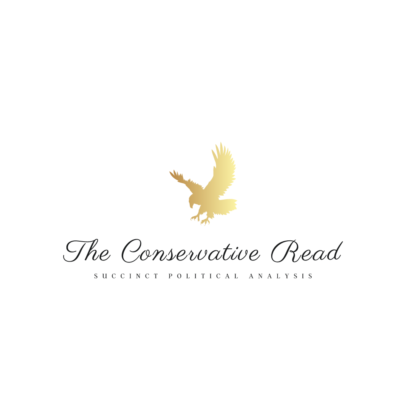
July 22, 2020
Thanks to the work of Senator Lindsey Graham (R-SC), chairman of the House Judiciary Committee, it is clear that the FBI knew long before the appointment of Special Counsel Robert Mueller that there was no credibility to the claims of Trump/Russian collusion.
Reminder- FISA warrants, which allowed the FBI to surveil a former Trump campaign aide, Carter Page, all relied upon oppositional research authored by former British spy Christopher Steele and financed by the Hillary Clinton campaign.
Interview Notes
Last Friday the Senate Committee released FBI notes from a three-day interview with Steele’s primary sub-source. Steele relied upon this one source for the majority of his reporting. The notes make clear that the FBI knew by at least January 2017 that Steele’s dossier was not credible.
The newly declassified 57-pages of notes reveal that the dossier should never have been taken seriously. Steele’s source even warned that much of the information he was giving was “rumor and speculation”.
None of the reporting in the dossier came from first-hand knowledge. It was all hearsay. Some of the information in the dossier was even acquired by Steele’s source at a bar, from someone whom he admitted they would often “drink heavily together”.
When asked about his “network” of contacts, the source’s attorney interjected that he didn’t have a “network”, it was a “social circle.” So, Steele’s primary source for his reporting obtained his information from his friends, who came by their information from second and third-hand accounts.
The first warrant to spy on Page was granted in October 2016. The primary evidence used in the FISA application was the Steele dossier. Even former FBI Deputy Director Andrew McCabe admitted in congressional testimony that without the dossier a FISA warrant would not have been obtained by the FBI.
By the time the FBI got around to interviewing Steele’s source, whom he relied upon for the bulk of the information in his dossier, the FBI and Obama’s DOJ had obtained a second warrant allowing for the continuation of the surveillance on Page.
Many have pointed out that Page was no longer with the campaign when the first warrant was granted, so therefore the FBI didn’t spy on Trump or his campaign. This is misleading. The warrant allowed the FBI not only to surveil Page’s current electronic communications, but it also allowed them to look back at all of his prior ones, including any he may have had with then-candidate Trump. Unmistakably, it was a backdoor into the Trump campaign.
Incredibly, even after the FBI knew that Steele’s reporting was dubious they continued to use the dossier as evidence for a third and fourth warrant to surveil Page.
Moreover, the leadership of the FBI allowed the dossier to leak to the media in January 2017 casting a pall over Trump’s nascent presidency.
Peter Strzok Notes
In case there was any doubt that the FBI knew the Steele dossier was garbage, newly unclassified notes written by Peter Strzok, the FBI agent who led the Trump-Russian collusion investigation, reveal he knew the dossier was not trustworthy. In February 2017 Strzok wrote that
“Recent interviews and investigation, however, reveal Steele may not be in a position to judge the reliability of his sub-source network”.
This note and others were a commentary on a February 2017 article published in the New York Times entitled, “Trump Campaign Aides Had Repeated Contacts With Russian Intelligence”. Comments by Strzok on the Times article dispel assertions made by this article, as well as contradict the claims made by the DOJ/FBI to the FISA court. Each of the four warrant applications filed between October 2016 and June 2017 claimed-
“The FBI believes that the Russian Government’s efforts to influence the 2016 presidential campaign were being coordinated with Page and perhaps other individuals associated with [Trump’s] campaign.”
In February 2017 Strzok wrote,
“[w}e have not seen evidence of any individuals affiliated with the Trump team in contact with IOS [Intelligence Officials]…We are unaware of ANY Trump advisors engaging in conversations with Russian intelligence officials.”
Bear in mind that the FBI had opened the investigation into Trump-Russia collusion, dubbed Crossfire Hurricane in July 2016. According to the agent in charge of the FBI Trump- Russian collusion probe, in February 2017, seven months into their investigation the FBI had no evidence that anyone from the Trump campaign ever conversed, never mind colluded, with Russian intelligence officials.
Despite having no evidence that Page even had a conversation with a Russian intelligence officer the DOJ/FBI asserted to the court four times, they believed he coordinated with Russia to affect the 2016 election.
It’s hard to believe that Strzok did not inform his superiors within the FBI and DOJ that their case against Page and their Trump-Russian collusion theory had no merit. If he did – Why was Crossfire Hurricane not shut down in January 2017? As we all now know, not only did the investigation continue, it was allowed to morph into a Special Counsel investigation consuming and tainting the first three years of Trump’s presidency.
Thankfully, the corruption among the top echelon in the FBI and DOJ is finally, although slowly being exposed. Much credit belongs to Attorney General William Barr. Earlier this year Barr tasked U.S. Attorney Jeff Jensen with investigating the case against Mike Flynn. It was during that investigation that Jensen discovered these never before uncovered interview notes and comments written by Strzok.
In May of last year, Barr appointed another U.S. Attorney, John Durham to investigate the origins of the Russia investigation. As of October, the inquiry officially became a criminal investigation. Durham’s work is expected to wrap up in late summer, early fall.
It’s about time. The American people deserve answers.

